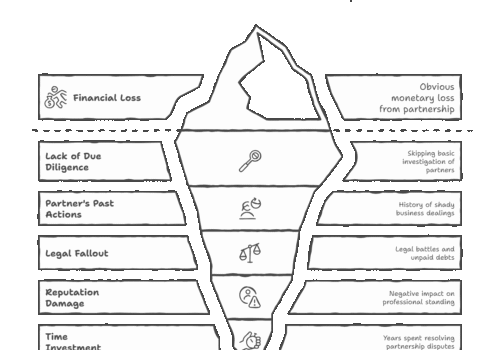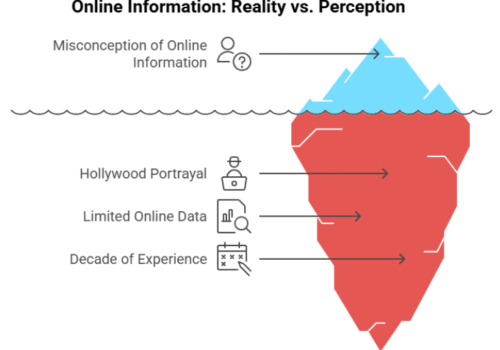Level 2 Background Checks: Requirements, Process, and Your Rights

Now, in my many years of assisting individuals and (believe me) just as many organizations with background screening, I’ve seen that that knot-in-your-stomach feeling can surround the entire process. Often, this is amplified exponentially when a Level 2 background check is requested or required if you like. I vividly recall a young woman – fresh out of college, bright-eyed, and eager to start her dream job as a teacher’s aide – contacting me, nearly in a panic to start out. Imagine that? She was totally taken aback upon learning out that she needed a Level 2 screening, and the terminology seemed needlessly daunting, which it really shouldn’t be, and the overall stakes felt almost impossibly high.
A Level 2 background check isn’t realistically just another random box to tick in the world of human resources. It’s a comprehensive (and I do mean comprehensive) process that’s specially designed to directly ensure the ongoing safety and the overall well-being of our more vulnerable populations. I find this especially vital in this day and age. According to some of the more recent data in my field, somewhere around maybe 70%, give or take, of all US companies conduct detailed background checks or some form of vetting procedures as standard practice. (Citation goes here if you can pull one and don’t just want to use me as the source). While on first reflection, this practice can frankly feel very intrusive if you’re in the employee’s seat, understanding the core of the processes involved and the reasons why they are put into place can be frankly incredibly empowering in the long run. The practice can transform what you may perceive to be anxiety into something of a positive confidence as you go forward.
This article, this hopefully helpful and useful guide, aims to provide a little of that understanding, particularly if you haven’t really dug in to it before. We’ll break down the more arcane seeming complexities of the Level 2 background check, carefully navigate each practical step with the appropriate level of clarity, and arm almost everybody with the critical knowledge you clearly need in order to reasonably approach this entire process with something that hopefully resembles actual peace of mind. And maybe even a little wry appreciation for the system overall. If you do end up getting to that point, let me know, I’d love to hear from you!
What Is a Level 2 Background Check? (The Nitty-Gritty Details)
Okay, so we want nitty gritty? Defining the Scope is going to be the first thing to look at. Level 2 simply put, like very simply, is an in-depth really intense investigation into a human person’s overall background and their known history. But, you reasonably ask, what does “in-depth” actually mean in this particular sense? To genuinely understand this, it is in some reasonable sense helpful to actually know what a Level 2 background check isn’t. It’s absolutely explicitly not just a simple name search casually run against what may be a rather limited database of information. It isn’t just “another run of the mill” background check. Level 2 checks go genuinely significantly further than just the kind of basic background screening that many companies use at times.
Those Level 2 Checks actually involve a far more comprehensive – sometimes it seems too comprehensive! – sort of a look. The practice often includes state run fingerprinting. They make some level of direct searches of seemingly countless various state and federal databases that can be used to more or less paint a complete picture of the person being investigated. So it’s explicitly designed to very deliberately provide a really truly high degree of confidence in at least the current suitability of a human individual. That’s especially important in circumstances when potentially vulnerable populations might be under the care of the investigated party, and you always have to keep that in mind.
Core Component of a Level 2 Check is a very important piece of the process to see what exactly makes it so thorough. The thoroughness directly of a Level 2 background completely stems from its multiple seemingly countless layers of sometimes very careful investigation. One of the more or less defining features in almost all cases is the process using state certified Fingerprinting services. These fingerprints are almost inevitably submitted to both state and federal agencies ,and agencies such as like the FBI, and that helps search the agencies’ extensive criminal-access databases almost completely. The state run component is something of a mission critical step from day one. The importance allows state personal for truly for positive identification ,greatly mitigating the kinds of simple errors that more easily and casually caused by things like commonly-named individuals or even more simple things like mismatched identifying little information that really add up.
With the state run Fingerprinting processes, the Level 2 check involves many different layers of complex criminal record search tactics. This will often feature things like a search through the state’s comprehensive overall criminal history documentation. Level 2 checks can search even further, sometimes they use what they call multi-state various criminal records to look for records of crimes that an individual may have committed in states that they have formerly even worked or lived. Along the chain, searching the federal courts databases for records of all federal crime is part of the package.
I’ll even remind you that, while sometimes commercial services are advertised to provide all sorts of things such as a “national level criminal database” things like this can be useful but they often don’t cut it. I’d say to not rely on the commercial sources for any real “official” legal verification procedures. So it just ends up being better for these specific Level 2 checks to search state level information repositories and go through the relevant federal databases for real solid verification of the check. It is to further insure that the individual being checked is not a registered sex offender with the different jurisdictions within the scope of the check.
Why Level 2? Understanding the Requirements
Thinking about what it is… You might understandably be wondering: which jobs actually critically necessitate what seems this frankly often somewhat truly intrusive level of almost microscopic scrutiny? Well, in my extended on the ground experience, Level 2 background checks are commonly required in various positions where an individual will critically have some reasonably level or the other of direct almost completely unsupervised contact with some number of perhaps more vulnerable populations to do the sort of jobs that have the needs of people in mind.
Consider these for instance, positions such as:
- Childcare Professionals: From the daycare workers or even the somewhat rarer preschool specific instructors, and the various nannies as well as after-school program support and teachers that help a center run, any body or anything responsible for the regular care of kids constantly have this type of background checks, I remember something when working for a summer care facility back in school and was checked for these things when working there. Picture a small daycare where the people need to know they are bringing the kids to a place they can trust; the check is pretty important.
- Healthcare workers and Professionals: Nurses and doctors or therapists and sometimes even those who are on the list for home healthcare sometimes take their job to different places in need of assistance, particularly to younger crowds or those in elder care assistance that need constant attention, and its common to have these people put through level 2 checks. So like specifically a nurse who might tend to work on the pediatric units; absolutely they require this check process.
- Elder People Workers: Assistants at Nursing and even just assistance givers providing regular care in general ,even people who are not medical but rather friends and helpers providing care as well as overall assistance. These people are required due to the fragile nature of the people and for the most part need to have the assurance that they will not be harmed in any way. The people that have level 2 checks are supposed to have the right mindset.
- School Instructors: Teachers and school bus drivers alongside all various personal which includes aid workers and people in teaching with them. People want their children safe from harm in their schools, so the need and emphasis on safety has caused the checks to become a big factor in the overall picture. Bus driving for instance, they’re one of first people a kid sees in the morning.
Let’s think about the whole process with the help of the Background check requirements overall. It centers on duty of care. Organizations and the people in charge and even regular employment now also have a legal and ethical obligation to keep every one reasonably safe from general harm of all kinds.
By carefully vetting every individual involved to prevent these things the background check will uncover and reveal and point out any possible bad people that do have a poor history with their check that otherwise will not be seen through basic screening processes. It really is a way to act on a better more improved process for a safer atmosphere.
Level 1 vs. Level 2 vs. FBI Checks: Decoding the Differences
Thinking to understand these different Levels. There is a very crucial understanding of these levels for people who seek out jobs for themselves as well as for the employees that need to manage all of the people on payroll and their business.
Feature, Level 1, Level 2, Data Source, Scope, Fingerprinting, Thoroughness, Use Cases, . The feature for the first check of level 1 checks with databases. This check has very little on fingerprinting. This check works on low risk or other cases like so. For level two the feature includes searches like those that will search the criminal backgrounds to make sure there is not a person who should not be allowed to be in those positions. You can even use these checks even if fingerprinting is not needed in some other general scenarios even though a 2 check goes much further.
If the police department were going to hire a front of store runner they would make this runner get a level 1 check to make sure the person does not have that poor of a background, on the other hand if this application was to apply for the position to directly provide for the injured and the harmed as a full time job this person would probably need a level 2 check in the hiring background process and it will depend on lots of complex factors. As good thought, always consult lawyers before making important decisions on any employment positions for all employment offers. You should use legal to work with you when checking background so you don’t risk issues.
Thinking this over, a regular FBI check commonly only puts only the focus on regular criminals and not people doing damage in smaller state wide zones and it would not hurt so much that the national and even just state level has also fallen victim. Not only that but even federal level checks seem to take a large length of time to manage.
Navigating the Level 2 Background Check Process: A Step-by-Step Guide
Knowing the best way to plan your path step-by-step along the road helps you plan where you are.
- Phase 1- Receiving Requests from the employer
It begins when an employer sends an individual seeking a certain occupation a request for them to get a background check, usually in person.
- Phase 2- Fingerprinting Processes
Digital methods of printing your unique fingerprints from across a location near and available to the person who needs tested are part of this part of the process. The main goal in mind while having a level check go on is to keep information from people with malicious intent hidden.
Getting the forms from all backgrounds correct. Contacting different court houses to put records in touch with correct educational and employee numbers that the company requires from each work position to see who touches students the most out of these positions.
- Phase 3- Reviewing Results
Following the completion of results and data collections from all data, background firms make compiled background reports. If you want to find all the correct information to make sure everything is in line you need to go through the reports yourself as the employee might miss it and it could mean lots to you if the smallest things are not up to snuff.
Remind that everything should be thoroughly correct for each item that you are trying to verify.
Common Roadblocks and How to Overcome Them: My Expert Tips
Sometimes its very easy to find the hard difficult spots in an ongoing job and to fall into one. Here are a few tips so that you don’t let these stop you. It is quite easy to find yourself flagged for any kind of similarities that lead to a wrong identity. I find it is the right option to just provide supporting documentation for your innocence to lead to a good solution.
You should also show that you are sorry and didn’t do it, just to be sure people fully trust you. You must absolutely maintain full good communication to let people know what you are all about to prevent and dispel any possible rumors. If it does indeed happens it is always possible to get back into a better future.
Choosing the Right Background Check Provider: Red Flags and Green Lights
Picking background check solutions is important for both what the employer wants to see and see for their people, it is not for all providers across the board to be equal in what they look for. Lots of companies find and stumble upon different providers for them. Being weary of all potential sources when going to different companies is a great tool. A better cost number along with transparency along the board is something you want to see as well.
Appealing a Level 2 Background Check Decision: Know Your Rights
If negative things happen during the event you have a right to appeal those results if you feel wronged. Make full use of these rights as all that it contains are there to keep you safe. You must show all the correct and factual results to keep others in touch. With supporting documentation of course. You should always try to be completely transparent with your intentions as well as respectful. The actions will do the most good in almost cases known.
You are more than fine to say that you don’t agree with the results but do not get angry at the information being shared.
As a highly seasoned and certified background screening specialist and master in my respective field, I fully comprehend the complex intricacies of how things have to be handled during these situations.I am very passionate in providing very quick and reliable and actionable advice so that clients can fully get as much assistance as possible!



